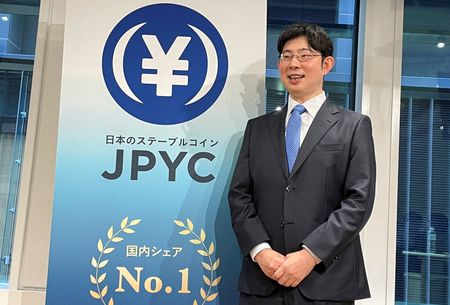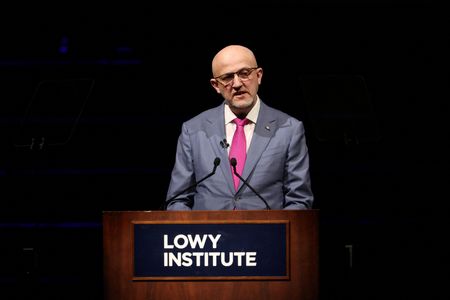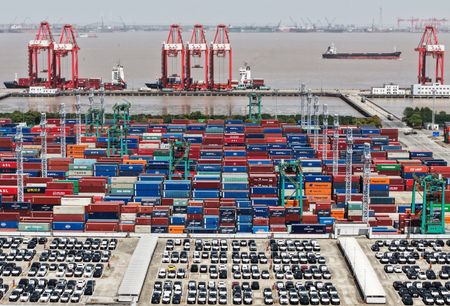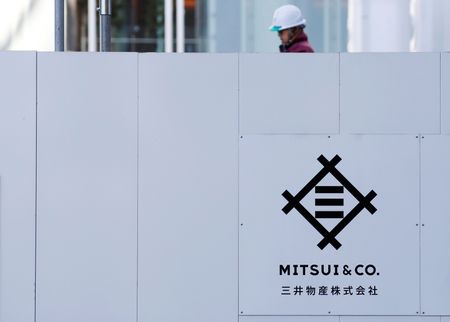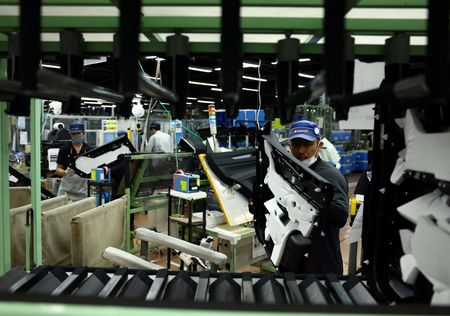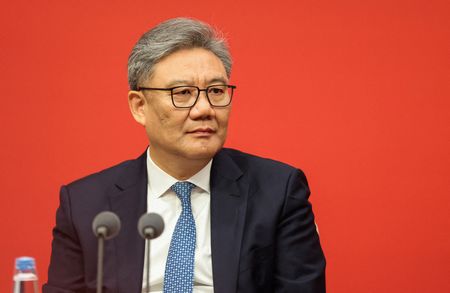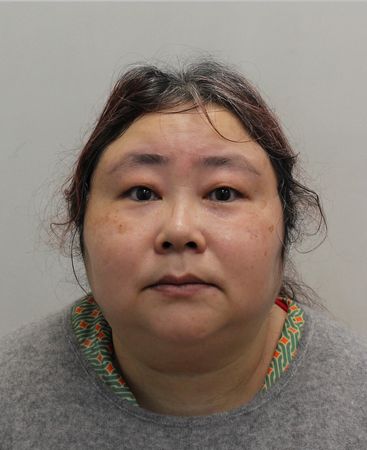By Leika Kihara
TOKYO (Reuters) -Stablecoin issuers could become major buyers of Japanese government bonds in several years and influence the central bank’s control over monetary policy, the head of Japan’s first domestic issuer of yen-pegged stablecoins told Reuters.
Japanese startup JPYC began issuing stablecoins pegged to the yen – also called JPYC – on October 27 in a significant move in a country where many consumers still prefer traditional payment methods such as cash and credit cards.
The company has rolled out about 143 million yen worth of JPYC so far with the number of account holders hitting 4,707 as of November 12. It has said it aims to issue 10 trillion yen ($66.32 billion) worth of JPYC over three years.
While still a drop in the ocean of a 290-billion-dollar stablecoin market, JPYC will help the yen hold a presence in a rapidly growing digital market where stablecoins pegged to the U.S. dollar make up 99% of global supply, the company’s CEO Noritaka Okabe said in an interview on Tuesday.
“Various assets are now traded on blockchains real-time across the world. But the stablecoin market is dominated by the dollar, which is a disadvantage to Japanese firms that need to pay extra hedging and transaction costs,” he said on Tuesday.
“Japan must ensure the yen has a presence in the global stablecoin market,” Okabe said.
Blockchain-based stablecoins are typically pegged to a fiat currency and offer faster and cheaper transactions.
JPYC is fully convertible to the yen and backed by domestic savings and Japanese government bonds (JGB). The company plans to invest 80% of its proceeds in JGBs and 20% in bank savings.
Given the rapid growth of stablecoins, issuers of the assets could become major buyers of bonds and in Japan help fill a hole left by the diminishing presence of the BOJ, Okabe said.
“With the BOJ tapering bond buying, stablecoin issuers could emerge as the biggest holders of JGBs in the next few years,” he said.
The increasing presence of such issuers could constrain the BOJ’s monetary policy, as the volumes of JGBs they buy are swayed by the balance of supply and demand for stablecoins, he said.
“While authorities could try to control the duration of bonds stablecoin issuers buy, it would be hard for them to control the volume they hold,” he said. “This will happen around the world. Japan is no exception.”
The BOJ still holds roughly 50% of the 1,055-trillion-yen JGB market, but began slowing bond purchases since last year as part of its efforts to phase out a decade-long, huge stimulus.
There is uncertainty on whether domestic financial institutions, which cut holdings during prolonged ultra-loose policy, will replace the BOJ as dominant JGB buyers with the new administration seen issuing more debt to fund spending plans.
While JPYC plans to mostly buy short-term securities, Okabe said he has been approached by lawmakers and government officials on whether it could buy more longer-duration JGBs.
“It’s something we could look into in the future,” he said.
Stablecoins pegged to the dollar have surged with strong backing from U.S. President Donald Trump. Japan’s three largest banks have announced a plan, backed by the country’s financial regulator, to experiment jointly issuing stablecoins.
Policymakers have warned stablecoins could facilitate the movement of funds outside regulated banking systems and undermine the role of commercial banks in global payment flows.
($1 = 150.7800 yen)
(Reporting by Leika Kihara; Editing by Sam Holmes)

